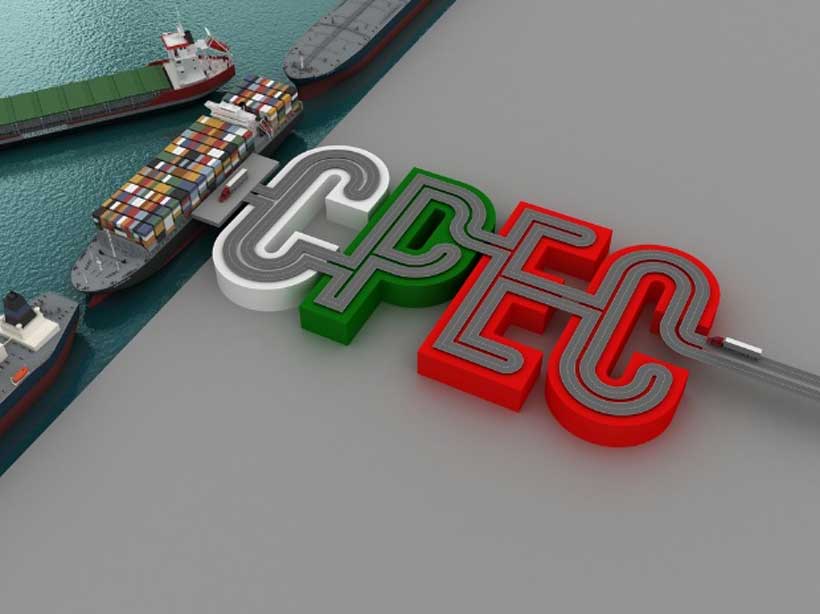
CPEC: Pakistan’s Road towards Economic and Political Brilliance
CPEC is not just a small prospect for Pakistan but one which has the potential to possibly turn the state into geo-economically substantial powerhouse in South Asia. China and Pakistan aim to substantially have momentous strategic and political gains within the international order towards their benefit with the help of CPEC and the meta-structure of OBOR. Much more than this, the strategic merit of South Asia can be largely heightened because of CPEC. The contemporary situation which persists in Afghanistan as a result of which all the massive actors have become involved and convoluted in the region has tied and looped in all the security complexes together and has put Pakistan at a predisposed position and aggravated its insecurity. It needs to be implied that the security configuration of Pakistan has now become much more linked to its economic system and CPEC is a pronounced example of this idea as well. Since CPEC is going to be an enterprise which will focus on both security and economics it inevitably means that advantageously Pakistan will get jauntiness.
But with all of its scale there are certain trials which Pakistan faces which are not just internal but also external in landscape. To begin with the external vestibule, the biggest challenge for Pakistan is the recognition of the project which certain other states with inimical stance are failing to give and thus they are repudiating towards CPEC as well as the strategic enterprise of China and Pakistan. This resentment is pre-eminently represented in the dominion of Afghanistan. Additionally in a setting where India has been continuously vexing to push Pakistan into seclusion and US still has the swindling policy of uncertainty towards the state in lieu of Afghanistan and in reality has been able to enhance their ‘do-more’ policy speaks for itself. Additionally the concept of unwarranted security and diplomatic relationships with Iran can also manifest in CPEC. In all of this, China has the requirements that there ought to be a suave undertaking of the project without any internal or external instability. And though the military and civilian representatives have reinforced their efforts to restraint terrorism, it appears to be re-developing in terms of some latest events in Lahore, Quetta and now Peshawar.
This tips us to the domestic challenges which are somewhat gradual and raw even for the state. Apart from revitalization of terrorism and extremism—the security structure is friable as well as the economic and political one. There is civil-military friction on the horizon and much more than that the nonexistence of consistency between political entities especially affecting CPEC is a massive issue. Many provincial parties have directed their frameworks towards CPEC and blame the old government for not forming policies which benefit them all.
Then there is the idea that in the given dynamics of Balochistan and particularly Gwadar as these will then become the core areas of interests. As a matter of fact Balochistan is going towards a dim cataclysm in terms of security, strategy, politics and economy. Balochistan and KP are central to the infrastructure of CPEC but in terms of security both are susceptible. Balochistan specifically is vulnerable not just from some of the Baloch nationalist groups which are keen to disrupt peace but also from India which is working clandestinely to keep the situation in Balochistan very dismantled.
The current attempt brings the dangers of relegation of Balochis which could also lead to issues of powerlessness, joblessness, discrimination and material and infrastructure deficiency given the past records of how the governments have managed Balochistan.
The policy makers play a prominent role in this scenario since they are required to come up with such concepts which deal with all the latent issues without making a mess of the internal and external issues of Pakistan and without causing any fissures with the relationship Pakistan has with China. For that reason the very first thing which needs to be done is the incorporation of the features of law which deal with such immense bi-lateral projects with detail. They ought to understand as to what extent Pakistan and China will have to contribute in the give-and-take of it.
Furthermore, there is also a necessity to make instantaneous and stable efforts to restraint terrorism from not just NWA but also from Balochistan and Punjab. There needs to be education and job opportunities in the quotas for Baloch, KP and other repressed youth so they can disband themselves from any pugnacious groups. Pakistan also needs to articulate constant policies in terms of Gwadar and its strategic, security and economic dynamics.
Lastly in order to cope with the peripheral threats, Pakistan ought to come up with a comprehensive foreign policy which includes stringent measures which deal with antagonized state behaviour towards itself which has in the past brought massive insecurity and instability within the country. It needs to come up with a framework as to how it deals with India, Iran, Afghanistan as well as the US in terms of CPEC. Perhaps there is a need to assess the future it can face as well as the past mistakes it made in terms of its foreign policy which did jumble its economic and trade links as well.
